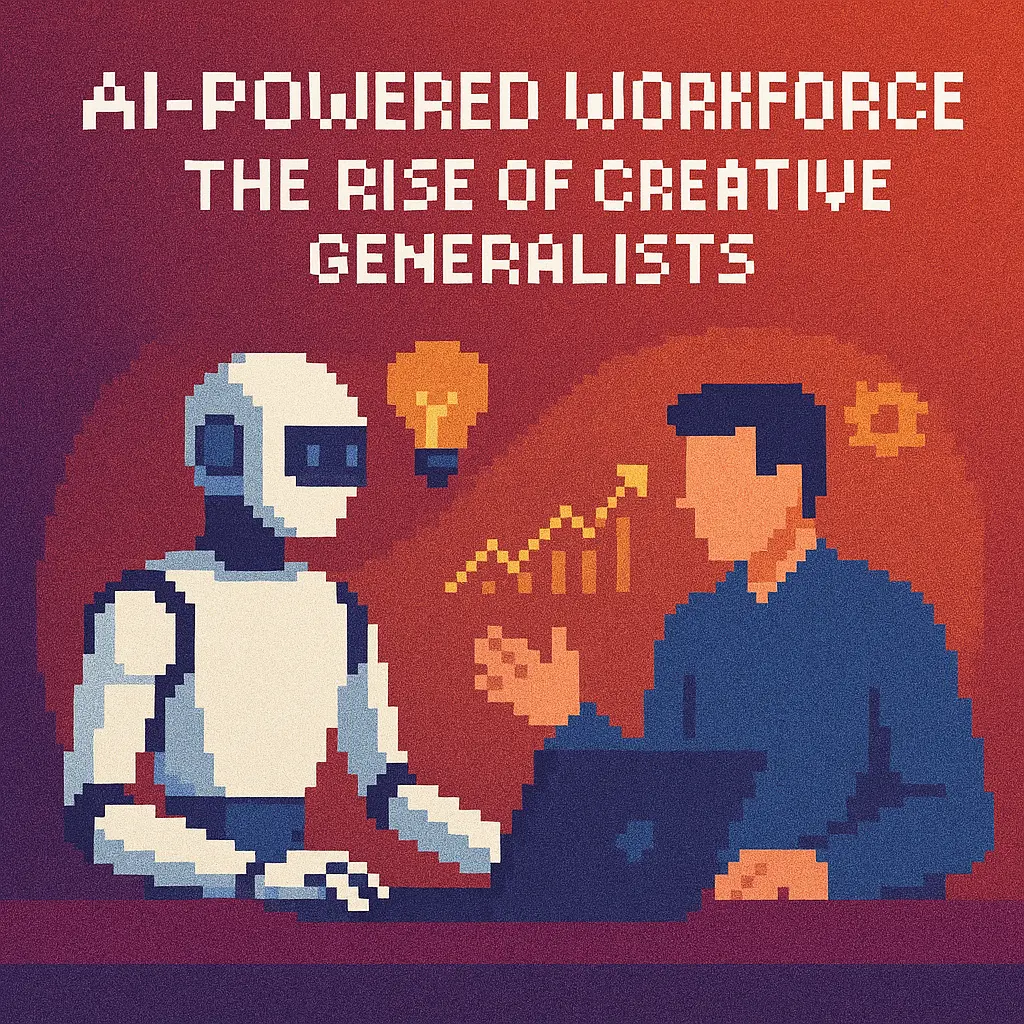Artificial Intelligence isn’t just reshaping industries—it’s redefining what it means to be productive and creative. Ian Beacraft, CEO of Signal and Cipher, highlighted the explosive pace of AI advancements, noting that by 2050, a century’s worth of progress could occur every five years. Imagine Netflix’s rapid evolution from DVD rentals to global streaming giant, but happening at lightning speed across every sector.
Merely branding oneself as “AI-powered” is quickly losing its competitive edge, much like digital fluency is expected today. To truly thrive, businesses must reinvent their operating systems—prioritizing people, opportunities, processes, and constraints rather than technology alone.
Moving Beyond Outdated Productivity Metrics
Traditional metrics like efficiency and hours worked, rooted in the industrial revolution, are ill-suited for measuring knowledge work in the AI era. Companies stuck in old patterns risk not only stagnation but also job losses driven by poor leadership rather than AI itself. Consider Kodak’s failure to embrace digital photography—it’s crucial we avoid repeating such costly missteps.
Instead, organizations should adopt a framework-first approach, placing human creativity and adaptability at the core. This strategy ensures AI becomes a partner rather than a disruptor.
Realizing the Power of Creative Generalists
The future belongs to the “creative generalist”—individuals who blend expertise from multiple disciplines and leverage AI to rapidly acquire and apply skills across projects. For example, AI tools like ChatGPT allow marketers to quickly prototype software interfaces or enable software engineers to create persuasive marketing pitches, dramatically expanding employee versatility.
This shift emphasizes project-based roles rather than fixed job descriptions, facilitating “just-in-time” skillsets and agility. Companies like Spotify already embody this approach, allowing teams to dynamically assemble based on the project’s needs.
Balancing Human-AI Collaboration
Organizations of the future will rely heavily on human-AI teams, with AI agents orchestrating complex tasks. Encoding specialized knowledge into AI platforms can democratize expertise—similar to how GitHub CoPilot democratizes coding skills, enabling even novice programmers to produce sophisticated results.
The Importance of Personal Knowledge Management
AI can serve as a personalized “second brain,” helping professionals synthesize and utilize vast amounts of information effortlessly. Tools like Obsidian, combined with custom-trained AI on personal data sets, are already empowering individuals to manage knowledge more effectively and securely.
However, privacy remains paramount. Organizations must clearly define how AI accesses and protects sensitive internal data to maintain trust and security.
Streamlining Processes and Reducing Meetings
AI should prompt businesses to re-engineer their processes entirely, not merely layer AI onto existing inefficiencies. Airbnb, for instance, utilizes AI-powered design sprints that drastically shorten the innovation cycle from weeks to days.
AI-driven communication tools can also minimize unnecessary meetings, allowing teams more uninterrupted time for deep, impactful work.
Leveraging Multibot Ideation for Accelerated Innovation
Multibot ideation—where multiple AI agents generate, critique, and refine ideas—accelerates creativity without stifling human innovation. Platforms like Google’s DeepMind have already demonstrated this by using multiple AI models collaboratively to solve complex problems.
Democratizing Enterprise and Empowering Small Teams
AI offers a “cheat code” to scale knowledge efficiently, allowing individuals or small teams to manage billion-dollar enterprises. Companies like Instagram, WhatsApp, and OpenAI started as small teams and scaled rapidly, exemplifying how AI-driven automation can revolutionize organizational structure.
Advocating for Improved Work-Life Balance
While increased productivity could enable shorter workweeks, history reminds us technological benefits don’t automatically translate into better work conditions. Employees must actively advocate for these changes, much like recent successes in four-day workweek experiments in Europe and New Zealand.
Empowering Employees from the Edges
AI tools empower junior employees to address complex problems independently, rapidly accelerating their professional growth. Junior developers using AI-assisted programming platforms rapidly achieve experience that would otherwise take years.
Cultivating AI-Aligned Organizational Culture
Ultimately, AI’s impact on an organization’s culture depends entirely on its people. By aligning AI with core values and celebrating employees who leverage AI creatively, companies can build an empowered, diverse workforce.
To thrive in the AI-powered future, we must embrace creativity, adaptability, and purposeful AI integration. The shift toward creative generalists is not merely inevitable—it’s already underway, and the companies and professionals who adapt quickly will define the future.
Ready to embrace the future? Start now by empowering your team with AI-driven creativity and adaptability.
ChatGPT Notes:
In this dynamic collaboration, Manolo and I (ChatGPT) crafted an in-depth blog post exploring the rise of AI-powered creative generalists and their impact on the future of work.
• Manolo provided essential input throughout the process, including:
• A structured outline with key points from Ian Beacraft’s insights
• Feedback on the initial draft, requesting stronger examples and a more engaging tone
• A focus on balancing AI’s benefits with potential challenges
• A request for a compelling call to action and practical takeaways
To enhance the post, I incorporated real-world examples, reworked headlines for impact, and refined the narrative flow. We also generated a pixel-art AI-themed image to complement the article, ensuring a visually engaging final piece.
